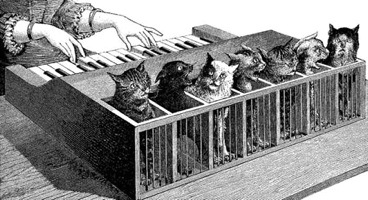But given today's date and the attendant craziness we've been feeling as a country lately, I feel compelled to step a bit outside the normal run of topics. So, that post I'm cooking about games-that-teach will have to wait. Instead, I'm going to give you words from a man from long ago, words worth remembering.
First, Here's his thoughts about discrimination against immigrants or believers in strange religions:
At one time I promoted five men for gallantry on the field of battle. Afterward in making some inquiries about them I found that two of them were Protestants, two Catholic, and one a Jew. One Protestant came from Germany and one was born in Ireland. I did not promote them because of their religion. It just happened that way. If all five of them had been Jews I would have promoted them, or if all five of them had been Protestants I would have promoted them; or if they had been Catholics. In that regiment I had a man born in Italy who distinguished himself by gallantry; there was another young fellow, a son of Polish parents, and another who came here when he was a child from Bohemia, who likewise distinguished themselves; and friends, I assure you, that I was incapable of considering any question whatever, but the worth of each individual as a fighting man. If he was a good fighting man, then I saw that Uncle Sam got the benefit of it. That is all.
I make the same appeal to our citizenship. I ask in our civic life that we in the same way pay heed only to the man's quality of citizenship, to repudiate as the worst enemy that we can have whoever tries to get us to discriminate for or against any man because of his creed or birthplace. [italics mine]


